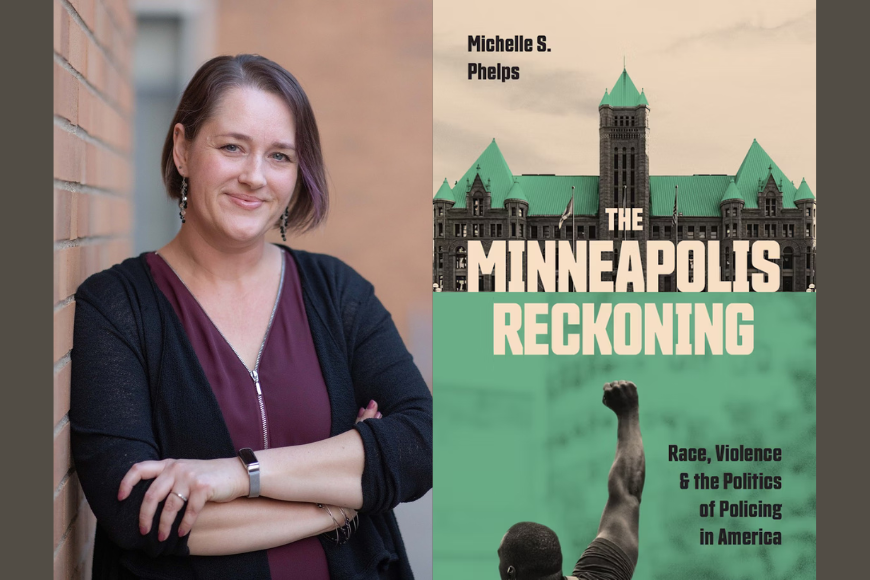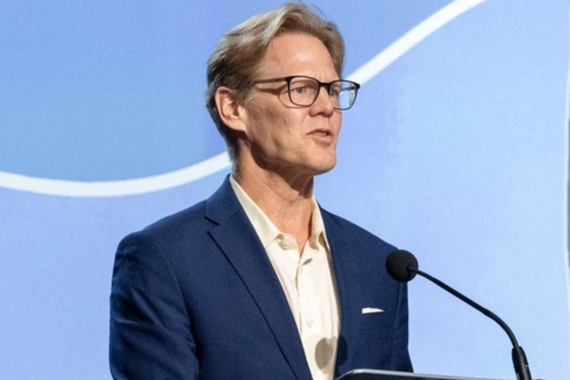Challenging Police Power in Minneapolis
It's now been four years since officers with the Minneapolis Police Department (MPD) killed George Perry Floyd, Jr. A new book, The Minneapolis Reckoning, by associate professor of sociology Michelle Phelps published by Princeton University Press traces the history of the MPD, charting how Minneapolis became an emblem for the failures of police reform in 2020 and what, if anything, has changed since then. The book draws on years of fieldwork in Minneapolis as well as historical and archival analysis.
Dr. Phelps found the following:
- The activist victories of summer 2020 in Minneapolis built on years (even decades) of organizing in the city and across the country.
- Residents in high-crime neighborhoods experience the brunt of both community and police violence. In these neighborhoods, people often report an ambivalent reliance on the police, both turning to them as a source of potential protection and recoiling from the threat of state violence.
- This tension between under-protection and over-policing was one of the reasons behind the failure of the 2021 amendment to replace the Minneapolis Police Department with a Department of Public Safety.
- Despite the charter amendment failure, innovative experiments in new approaches to public safety have developed in Minneapolis. These include community-led initiatives to build solidarity among residents as well as city-led programs to create new responses for mental and behavioral health crises.
The story begins with the birth of the city of Minneapolis and its police force, tracing how the MPD changed over time as the city grew larger and became more racially diverse, setting the stage for present-day inequality. Through interviews with organizers who fought against police violence in the city in 2017-2019, we see how and why activists turned toward police abolition long before Floyd's murder. The third empirical chapter, co-authored with (current and former) UMN graduate students Chris Robertson and Amber Joy Powell, draws on interviews conducted with over 100 residents of North Minneapolis to understand how residents in the communities most impacted by both community and police violence grappled with the contemporary crisis in policing.
Those narratives help to explain the rage that erupted across the city in summer 2020, the focus of the second half of the book. Starting at the site of the murder, Phelps traces what happened in its wake, from the protests and the charter amendment to "end" the MPD, to legal investigations into the involved officers and department, and efforts inside and outside of city government to reimagine public safety.
"Many people think that the defund the police slogan failed in Minneapolis. But the truth is more complicated. In fact, the organizing in the city has had critical impacts on local policy-making. And change is still coming for the MPD and the city's public safety apparatus."
In recent decades, the police have become a powerful player in local politics, rebuffing attempts to challenge police power even after high-profile instances of egregious police violence. Their power reflects in large part the public's reliance on law enforcement when other institutions and connections fail. The answer, the book argues, to the unsolvable dilemma of police violence is not to simply reform policing, but to change the structural inequities that produce these failures.
Phelps notes, "Moving forward, I think the most important thing we can all do is work to expand our imaginations about what's possible. That means rethinking historical inequities often taken for granted and striving toward justice in our interactions with friends, family, and neighbors."
This project was supported by a number of University of Minnesota programs and initiatives, including the Grant-in-Aid of Research, Artistry, and Scholarship program, Center for Urban and Regional Affairs (Faculty Interactive Research Program), Robert J. Jones Urban Research and Outreach-Engagement Center, Beverly and Richard Fink Summer Fellowship Program; Ronald E. McNair Scholars Program; and Department of Sociology.



